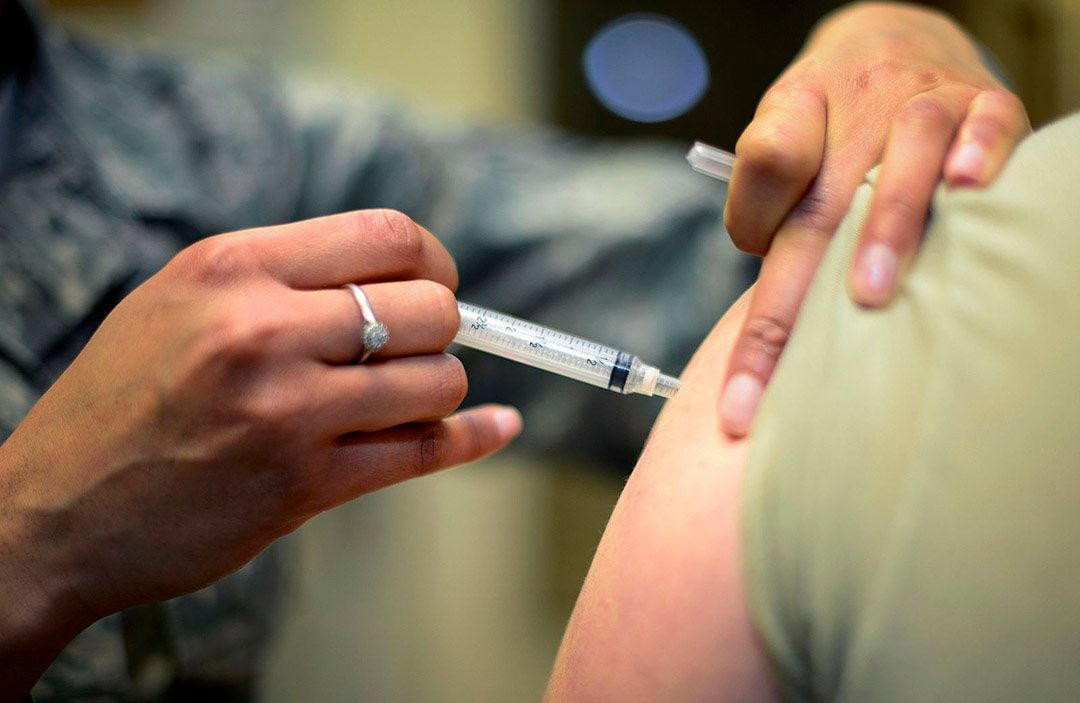A new phrase is becoming more widely heard when medical experts talk about the lingering effects of COVID-19. “Long COVID” is used to categorize the diverse physical effects recovered patients feel for weeks, months or, researchers fear, maybe years.
Dr. David Hess, Dean of the Medical College of Georgia, said symptoms that persist, or may develop when a patient contracts COVID-19, are called long COVID. The symptoms can include the continued loss of smell or taste, difficulty breathing or shortness of breath, being constantly fatigued, having difficulty thinking or concentrating and depression.
“We don’t think the virus is living in the brain or living in the tissues,” he said. “We think the virus is probably cleared. One of the theories is the immune system is needed to combat the virus and the virus alters the immune system. Their immune systems haven’t quite recovered.”
MORE: COVID-19 Booster Shots to Roll Out Starting Next Month
Hess said when the immune system isn’t working, a patient can develop a kind of chronic inflammation that triggers a constant stimulation of the immune system.
The National Institutes of Health became interested in the lingering effects of the virus and gave MCG funding to study long COVID.
Hess said, “We were funded by the NIH to have a cohort of patients that were infected with the virus. We would follow them and see what the prevalence of long COVID was.”
That led to creating the COVID-19 Neurological and Molecular Perspective Cohort Study, or CONGA, at MCG. They have 250-260 people enrolled so far, have analyzed the first 100 and are completing the analysis of the second 100.
[adrotate banner=”19″]
“Our experience is that about a third of people who have COVID develop some measure of long COVID,” Hess said. “What’s interesting is only a minority of our patients were hospitalized, only about 15%.”
Hess said they are continuing to enroll patients into the CONGA study. They want 500 patients from the CSRA counties of Georgia and South Carolina. They’re trying to get a group that is half Caucasian patients and half African American.
Hess said, “You may know there’s a concern African-Americans have a higher death rate from COVID, but no one knows yet if they will have more long COVID.”
Subjects are screened for depression and anxiety before entering the program, and extensive cognitive tests are run to check memory and thought process. They want to follow the patients for at least five years.
MORE: Georgia Tops More Than 1 Million COVID-19 Cases
The program received $308,000 in emergency COVID-19 funding from the NIH. That will fund the first year of the study. In June 2021, three local philanthropists, TR Reddy and his wife Dr. Anjiji Reddy, Jim Hull, chair of the AU Health System Board and a member of the Georgia Board of Regents, and Ronnie Powell, owner of Powell Construction in Appling, added another $300,000.
To find out more about the MCG CONGA study, or enroll as a test subject, email CONGA@augusta.edu
Dana Lynn McIntyre is a Staff Reporter with The Augusta Press. You can reach her at dana@theaugustapress.com.
[adrotate banner=”51″]











